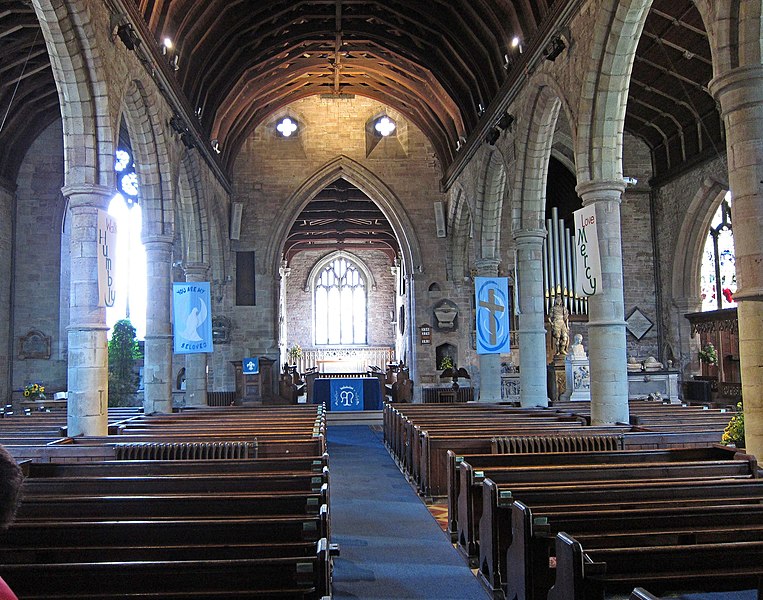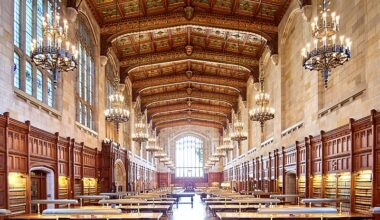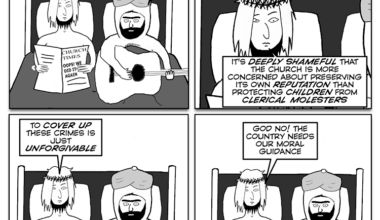A character in a Hemingway novel was asked how he went bankrupt and famously answered: ‘Two ways. Gradually and then suddenly.’ These words seem apt to describe the plight of the Church of England. Abuse scandals have been slowly corroding its moral authority for decades. As a lawyer representing abuse survivors, I concluded years ago that clerical sex abuse in the Church of England was probably as bad as in the Catholic Church—in other words, about as bad as it could be.
For reasons of reputational protection, abuse was hushed up—which, as ever, led to an even greater reputational fiasco when the extent of the cover-up became clear. Senior bishops were hauled before the Independent Inquiry into Child Sexual Abuse (IICSA), which published damning reports about the Church’s abuse problem. Then Alexis Jay, chair of the IICSA, was commissioned by the Church itself to review its safeguarding procedures and make recommendations. Her 2024 report concluded that the Church could no longer be trusted. Safeguarding had to be done independently of the church and overseen by an independent body—an utterly damning verdict if ever there was one.
Then came the Makin report, with its devastating conclusions about Archbishop of Canterbury Justin Welby himself. Welby’s position quickly became untenable, but he contrived to sour his resignation even further with a crass and embarrassing valedictory speech in the House of Lords. Listening to that speech, some of his colleagues chortled along with him; others sat in embarrassed silence. The next day Welby apologised. But his deep sense of self-entitlement had been fully exposed. Over a few days, the Church of England’s slide into moral bankruptcy shifted from slow to sudden, and it is difficult to see how its reputation will ever recover.
The idea that the Church of England could be the conscience of anything is now self-evidently absurd.
After Welby’s apology, a few bishops tried to play catch up and joined in the public criticism. But this just looked opportunistic. Only one bishop has emerged from the last few weeks with any credit: Helen-Ann Hartley, the Bishop of Newcastle, who called for Welby’s resignation from the outset and who has spoken out repeatedly against the ‘power, privilege and entitlement’ at the top of the church—speaking up left her feeling ‘frozen out’ by her fellow bishops. Bishop Hartley’s courage and honesty have been truly admirable. But she alone cannot atone for the moral failings of her colleagues.
Martin Luther King once suggested that religion could be the ‘conscience of the state’. But the idea that the Church of England could be the conscience of anything is now self-evidently absurd. Perhaps it was always so: the Church of England came into being because an English king wanted to rid himself of an inconvenient first wife, so its moral foundations were probably shaky from the outset. But after decades of covering up abuse, and being found out for it, the idea that the Church of England corporately can be a moral force in society is simply laughable. Some individual clerics can command respect in their local communities. I know a few who do, mostly because they ignore the bishops’ suffocating managerialism, don’t obsess about sex, and show genuine solidarity with abuse survivors and a commitment to community welfare. But in terms of institutional credibility, the Church of England is finished.
Does this bring disestablishment closer? The answer is surely yes. As Stephen Evans argued recently in these pages, the case for disestablishment is now overwhelming. In my view two factors have protected the Church of England’s established status. The main one is public indifference. With falling numbers in the pews, the Church of England has become so irrelevant to the lives of the large majority of the British population that when it comes to the question of its legal status, the public has not greatly cared. Some cultural manifestations of Anglicanism are quite popular: people like pretty parish churches and the sound of church bells. But people increasingly realise that none of that necessitates bishops in the House of Lords.
Welby’s self-pitying valedictory speech—not a word of which contained any thought for the abuse survivors he and his church had failed—showed how its constitutional privileges have made the Church of England, or at least those at its helm, lazy and entitled. Although this culture of entitlement has not served the Church of England well, as its rapidly declining congregations testify, it largely operates below the public’s radar. However, the child abuse scandals are turning public ignorance and indifference into revulsion. Welby’s resignation and appalling follow-up speech got media ‘cut through’ as never before. And now, as of time of writing, the Church’s second-highest clergyman, the Archbishop of York—due to become the Church’s caretaker leader—is facing loud calls to resign for his handling of a historic abuse case.
And more than a few Anglicans are starting to realise that disestablishment might be the only way to save the Church. My late friend and radical Anglican priest the Rev Ken Leech—a critic of establishment—called the Church of England ‘a captivated and compromised church, a church in bondage to Babylon.’ But, he argued, ‘were it to be disestablished, the Church of England might well lose some of its more expensive buildings and much of its status, but what it might gain in credibility is enormous.’ Intelligent Anglicans are starting to agree.
The second factor protecting the Church’s established status is a fear that untying the knot between church and state might be legally difficult: hence time-consuming, and so unattractive to politicians who have too many other things to worry about. In fact, the main legislative measures are not that complicated: rewrite the coronation oath, end the right of bishops to sit in the House of Lords, and end the involvement of the monarch and Parliament in the appointment of bishops and the governance of the Church. These measures would remove the key features of establishment, namely the sovereignty of the head of state over the Church and ecclesiastical representation by right in the national legislature.
So far as legal mechanics are concerned, there are ample precedents—for example, the Irish Church Act 1869, which disestablished the Church of Ireland and removed its bishops from the House of Lords, or the Welsh Church Act 1914 (which took effect in 1919-20). The knottiest issue might be church finances and assets. Again, however, there are historical precedents to draw upon, even if at first glance they seem distant from our own situation—for example, the settlement on church property in the 1905 French law on the Separation of the Churches and the State.
The time for disestablishment has arrived.
Still, the property issue could take longer and could also be complicated by the Church of England’s internal divisions. The conservative evangelicals have the money and the biggest congregations, but their views, including opposition to same-sex marriage, are most at odds with contemporary British society; liberal Anglicans are much more at ease with Britain as it is but are a declining force within the Church of England itself. A split may not be far off, and when it happens, the question of how assets are divided up will become even more complicated. So the property and assets issue cannot be allowed to stall the other changes listed above—it needs to be resolved over a longer period.
In short, the time for disestablishment has arrived. As a result of recent events, the public has started to see the necessity for it. Only the appearance of complexity can delay it. Church disestablishment has happened before within the British state, in Ireland and Wales. The challenge for those who support it is to make it as simple as possible. Then it can be done again, this time to the Church of England.









5 comments
To me, the abuse by church leaders, who seem predominantly to hail from the “evangelical” – the most controlling – wing of the CoE, only serves to me to prove that they do not really believe it themselves. Certainly not in a god who punishes evil on the one hand and on the other the carpenter from Nazareth of who Isaiah is supposed to say in 42:3 “A bruised reed he will not break, and a smoldering wick he will not snuff out.”
Fully agree, Richard.
I would only question whether ‘sex abuse in the Church of England was probably as bad as in the Catholic Church’.
Given the Catholic Church’s appaling record of sex abuse across the globe and over decades, and its abject failure to accept it, should not the Pope be considering his position and resigning like Justin Welby has done?
We are finally about to be rid of hereditary peers in the House of Lords and the case for displacing the bishops daily strengthens. The outcome of this would be a second chamber appointed purely by Prime Ministerial patronage. This result could be as undemocratic as the current composition unless some sort of public participation came into the selection of peers.
As we have seen, each general election is followed by the ennoblement of a number of ex-MPs and worthies who have recently made substantial donations to the party returned as the majority. Although this latter must surely be merely coincidental. The result is a steadily expanding list of peers and one of the largest parliaments in the world.
Why has the Supreme Governor of the Church of England not resigned over this?
It is worth noting that establishment is the main reason – perhaps the only reason – that conservative evangelicals remain within the Church of England. In places where Anglicanism is not established (Ireland, Scotland, Wales, Canada, the United States) the conevos have mostly decamped, if indeed they were ever part of. They choose not to be “yoked” with those who are not obsessed with regulating sex and subjugating women.
By contrast, those same conevos who would have their own denominations anywhere else remain within the CofE because of the singular advantages establishment provides; a presence in every community and access to state schools. Because of these things, the same CofE they generally regard as heretical and apostate becomes “a convenient boat to fish from.”
Your email address will not be published. Comments are subject to our Community Guidelines. Required fields are marked *
Donate